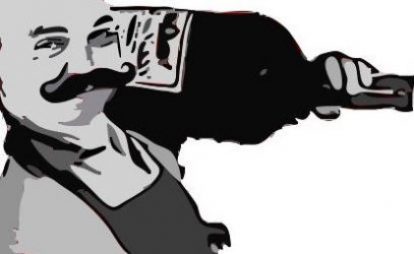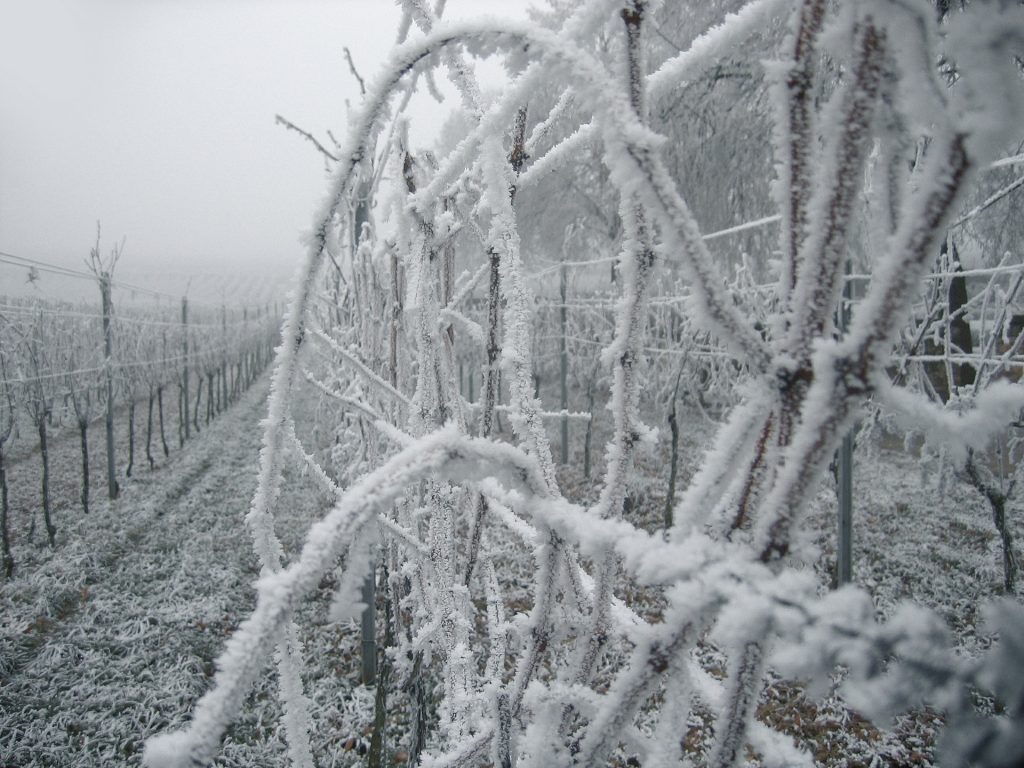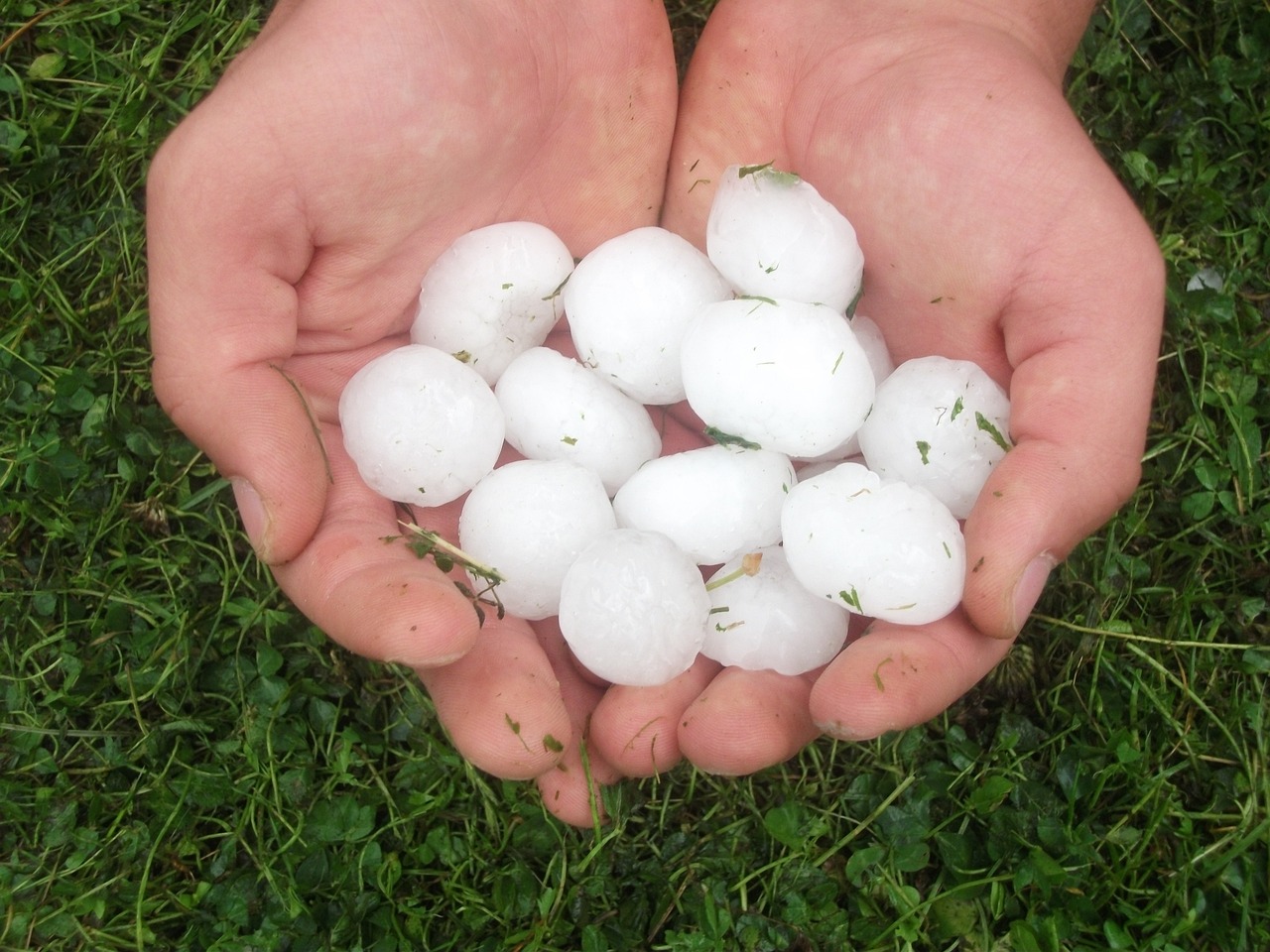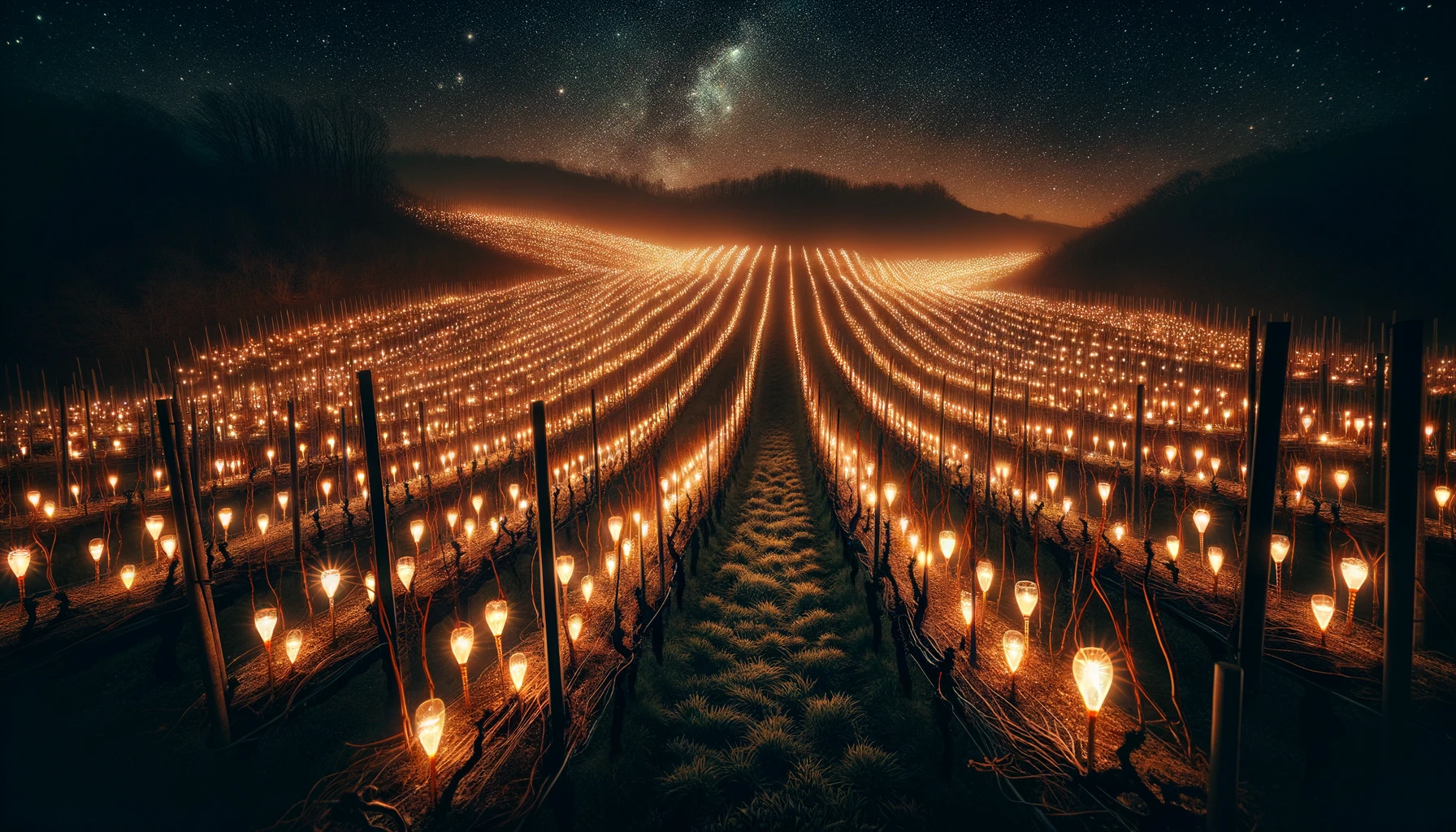If you want to make God laugh, tell him your plans… everything had been organised and I was supposed to be of to another trip to Geisenheim University in the beautiful Rheingau last week. I meant to finish the weekly update when a positive Covid test turned everything upside down. As a result, here is a combined two-week edition of the latest edition of the JollyCellarMaster Weekly:
Late Frost, Selling Futures and the Latest Numbers
Climate Change in Theory and Practise
Apart from a few berries that still hang on the stock until they are almost as dry as raisins, harvest is all but over in the northern hemisphere. While the quietness of autumn might lull us into some false sense of security, there is another climate summit under way and the effects that are discussed in Egypt are felt elsewhere around the globe.
The financial cost in the EU alone for the past decade has been quantified at over €145 billion in economic losses and between 1980 and 2020, the estimated losses reached almost €500 billion in the EU countries. According to Euronews, France, Italy, and Germany are being hit the hardest by this extreme weather and the flooding caused by the Ahr river last year is just one example that emphasises the impact of climate change.
But the wine world is full of examples in the recent past of the kind of freak weather events we need to get used to as the European Environmental Agency (EEA) reports that climate-related extremes are becoming more common as time goes on. If you need further proof or examples, you could also think of the wild fires in Spain and France this year and before that in California and Australia.
The numbers are based on data collected by Eurostat, which considers meteorological events such as storms, hydrological events such as floods or mass movements, and climatological events such as heatwaves, cold waves, droughts, or forest fires. The reported economic losses generally only reflect direct damage to physical assets – this means they are only partial estimates.
The climate-related losses don’t include losses in the areas of mortality and health, cultural heritage, or ecosystem services. This means that the true levels of damage are likely to be considerably higher.
I am not sure whether the freak frost event in Argentina should be considered under this definition, but it is without doubt worth mentioning as Mendoza’s government declared an agricultural state of emergency following two nights of devastating frost. It impacted over 10,000 hectares of vineyards as well as other crops as temperatures in parts of Mendoza plummeted to -4.5C.
Barolo en primeur
Decanter reported that the second edition of the charity auction has beaten last year’s sales total and there were signs Barolo en primeur could become a bigger part of the fine wine calendar in future. In an article outlining the details if the event, it says that while the Barolo 2022 en primeur charity auction was physically held in Piedmont on 28 October, it was also live-streamed in New York, and amounted to sales of $769,800. It was organised by Fondazione Cassa di Risparmio di Cuneo and Fondazione CRC Donare ETS, working in partnership with the Consorzio di tutela Barolo Barbaresco Alba Langhe e Dogliani. Eventually, final sales were likely to top $800,000, with one final lot to be offered at the international Alba white truffle auction on 13 November, which is an increase by around $170,000 on last year’s inaugural event.
Just to get us all on the same page, the concept of selling wines en primeur really kicked off in Bordeaux in the 1970s where the chateaux basically in spring sell all or part of the recent harvest as futures. Nowadays, accompanied by a notorious week of tastings all across the region, it helps the producers establish prices. While they can sell all of their stock in that way and receive the money long before the wine is bottled, it is usually sold in tranches. The advantages for producers are immediate capitalisation of their produce, while consumers normally can buy the wines with a discount in exchange for their patience. However, there is no guarantee since prices in the past have dropped on occasion during the two years of attendance, like in 1997. Just as with all forms of speculation, it also makes space for some sort of bubble and not everyone is convinced, most famously displayed by Château Latour, which decided to pull out in 2012.
Back to Barolo though: the organisers claim that the model is here to stay, though in a much lighter format than on the other side of the Alps as it looks like the marketing effect of the events is the predominant factor – for now at least.
An Average Year?
OIV, the International Organization of Vine and Wine, has published the first estimates for this year’s harvest. The OIV harvest outlook presentation announced that “in the European Union (EU), 2022 wine production is expected to be at 157 mhl, recording an annual increase of 3.5 mhl (+2%) compared to 2021. Positive performances in Italy, France, and Germany balanced out the low harvests in Spain, Portugal and Greece, which were particularly affected by drought and heat waves during growing season“.
As a result, world wine production is expected to remain stable in 2022 at about 260 mhl, despite drought and heat waves that record in many regions of the world. This will be the fourth consecutive year that global production is expected to be slightly below its 20-year average.
Around the globe, it has been a year that has been characterised by extreme heat and record-breaking drought that sped up ripening in vineyards all over the globe.
A report recently published by the Global Drought Observatory indicated that almost two thirds of the European territory was in a state of drought or on alert due to heat waves and extremely low rainfall: this has been the worst drought in the last 500 years. And Europe was not the only region impacted: from East Africa to California, extreme temperatures have been recorded this year. Remember what we just talked about in our first story today?
Natural Wine and Vin de France
And lastly, there is the sad news that Jacques Berthomeau has passed away at the age of 74. Well known especially in France for his popular daily blog on food and wine, he was also the author of an eponymous 2001 report that laid the foundations for the eventual modernization of the French wine industry.
The Rapport Berthomeau was delivered to the French minister of agriculture in 2001 with the objective of persuading the government and wine industry to adopt a model similar to the one of Vin de France now in force. WBI writes that back in the day the French wine establishment was shocked by his recommendation to create a new classification called Vin de France that would enable producers to compete with varietal wines from the New World, which only eight years later became reality.
—
Well, that’s all for today. However, if you have an interesting story to tell or simply want to chat about wine as a guest on the Podcast, connect on Twitter or drop me a line. And if you want to stay in the loop about things happening at the JollyCellarMaster and the world of wine, make sure you sign up to our newsletter.
—
Disclaimer: As always, I’d like to be completely transparent about affiliations, conflicts of interest, my expressed views and liability: Like anywhere else on this website, the views and opinions expressed are solely those of the original authors and other contributors. The material information contained on this website is for general information purposes only. I endeavour to keep this information correct and up-to-date, I do not accept any liability for any falls in accurate or incomplete information or damages arising from technical issues as well as damages arising from clicking on or relying on third-party links. I am not responsible for outside links and information is contained in this article nor does it contain any referrals or affiliations with any of the producers or companies mentioned. As I said, the opinions my own, no liability, just thought it would be important to make this clear. Thanks!




